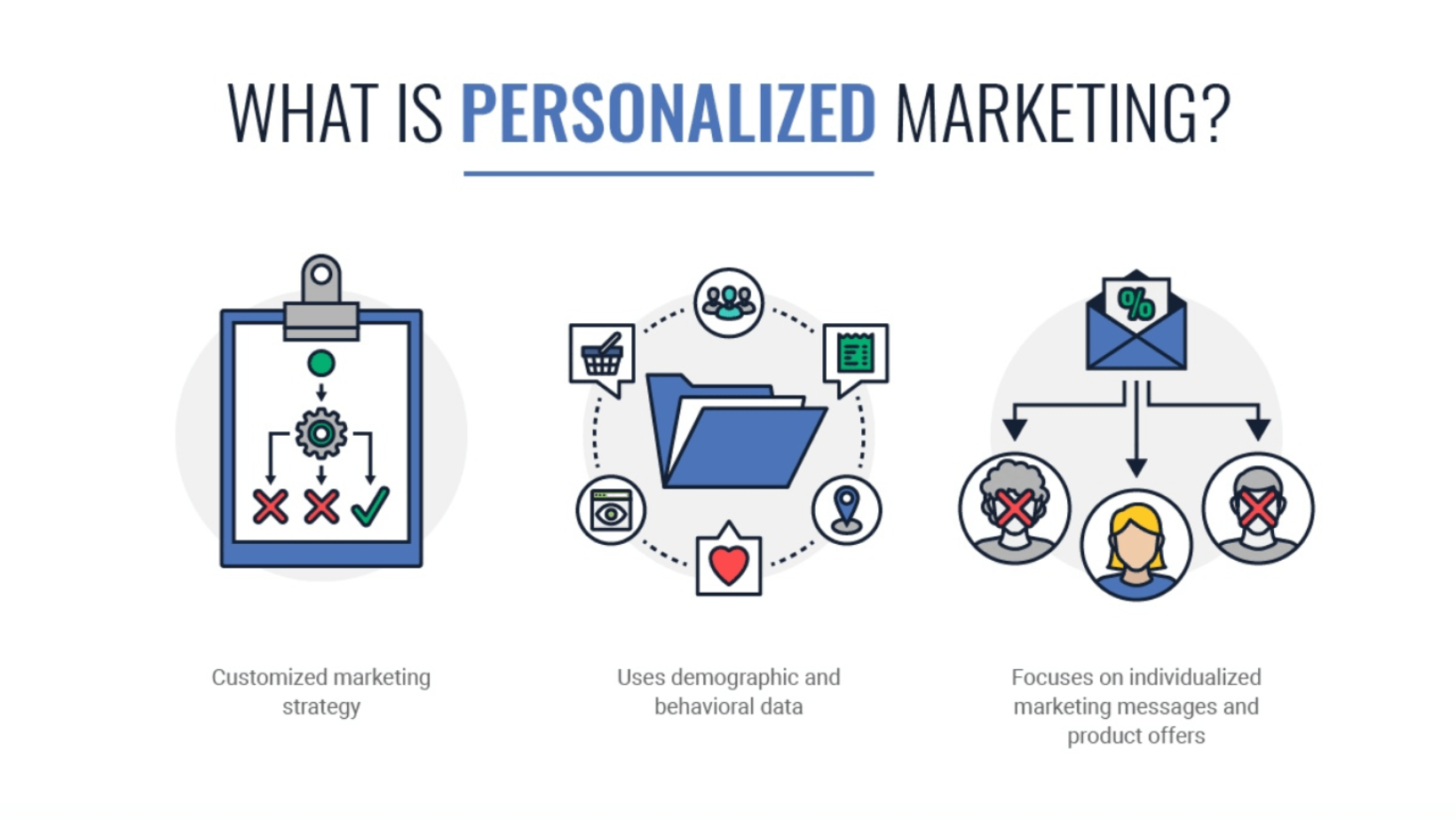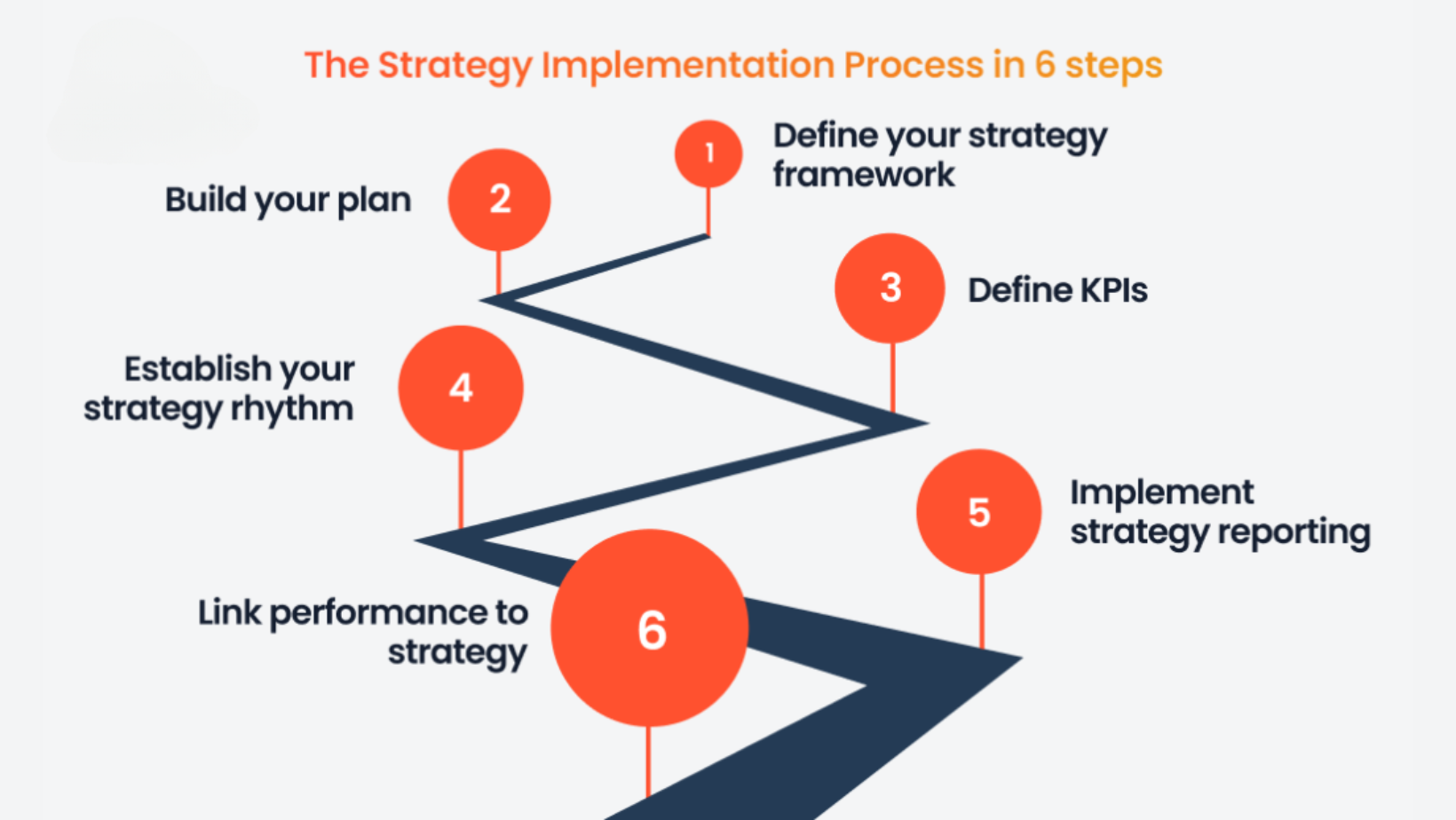Introduction to Personalized Marketing
Personalized marketing is a strategic approach that focuses on creating meaningful connections with customers by tailoring marketing efforts and content to their individual preferences, behaviors, and needs. Rather than using a one-size-fits-all approach, personalized marketing aims to deliver relevant and personalized experiences to customers, thereby increasing engagement, customer satisfaction, and ultimately, driving business growth.
The concept of personalized marketing revolves around the understanding that consumers are inundated with a vast amount of information and advertising messages on a daily basis. Consequently, marketers have realized the need to cut through the noise and deliver targeted messages that resonate with each customer on a personal level.

Personalized marketing offers a range of benefits for both businesses and customers. By understanding and addressing individual customer needs and preferences, businesses can enhance customer loyalty, increase customer satisfaction, and foster stronger long-term relationships. For customers, personalized marketing ensures that they receive tailored recommendations, relevant content, and offers that align with their interests and preferences.
However, implementing personalized marketing strategies comes with its own set of challenges. One of the key challenges is collecting and analyzing customer data effectively. Without accurate and comprehensive data, personalization efforts may fall short of expectations. Additionally, businesses must navigate the ethical considerations surrounding data collection and ensure that they comply with data protection regulations.
Collecting and Analyzing Customer Data
To implement personalized marketing, businesses need to collect and analyze customer data from various sources. These sources include online behavior tracking, demographic information, and purchase history.
Online behavior tracking involves monitoring and analyzing customer interactions with a company’s website or digital platforms. This data provides valuable insights into customer preferences, browsing patterns, and engagement levels. By understanding how customers navigate and interact with digital touchpoints, businesses can personalize their marketing efforts accordingly.
Demographic information encompasses data such as age, gender, location, and socioeconomic factors. This type of data helps businesses segment their customer base and create targeted marketing campaigns tailored to specific demographics.
Purchase history data refers to information about a customer’s past purchases, including products or services bought, frequency of purchases, and average spend. This data enables businesses to make personalized recommendations, offer relevant discounts or promotions, and suggest complementary products.
While data collection is essential for personalized marketing, businesses must navigate ethical considerations to ensure customer privacy and data protection. This includes implementing measures to ensure customer privacy, gaining explicit consent for data usage, and complying with data protection regulations such as the General Data Protection Regulation (GDPR) and the California Consumer Privacy Act (CCPA).
Furthermore, leveraging customer data for effective personalization involves a range of strategies. Segmentation and targeting involves dividing a customer base into distinct groups based on shared characteristics, preferences, or behaviors. By segmenting customers, businesses can tailor their marketing efforts to each group’s specific needs and interests.
Predictive analytics is another powerful tool in personalized marketing. By analyzing customer data, businesses can predict future preferences, behaviors, or purchase patterns. This enables them to create personalized experiences in real-time, delivering relevant offers or recommendations to customers based on their likely future actions.

Real-time data analysis and adaptive strategies allow businesses to respond dynamically to customer interactions. By analyzing customer behavior in real-time, businesses can adapt their marketing messages or offers on-the-fly, ensuring that customers receive the most relevant and timely content.
Personalized Content Creation
Crafting tailored messaging and offers is a crucial aspect of personalized marketing. This involves creating relevant and timely content that resonates with each customer. To achieve this, marketers can utilize storytelling techniques to engage customers on an emotional level. By creating narratives that align with customer interests or values, businesses can establish a deeper connection and enhance customer engagement.
Incorporating dynamic content elements further enhances personalized marketing efforts. This could include using personalized visual elements, interactive features, or adaptive recommendations based on real-time customer data. By providing dynamic and engaging content experiences, businesses can capture the attention of their customers and drive meaningful interactions.
Furthermore, personalization through targeted recommendations is a powerful tool for delivering personalized experiences. Utilizing recommendation algorithms, businesses can offer relevant product suggestions or highlight complementary items based on a customer’s browsing or purchase history. Cross-selling and upselling strategies can also be employed, allowing businesses to suggest additional products or services that may be of interest to the customer.
Multichannel personalization ensures a holistic customer experience by delivering consistent messaging across different touchpoints. This includes personalizing social media interactions, such as tailoring advertisements or content based on customer preferences or behaviors. Additionally, incorporating personalization in email marketing campaigns can significantly enhance open rates, click-through rates, and overall customer engagement.
Implementation Strategies and Best Practices
To effectively implement personalized marketing, businesses need to leverage technology and adopt best practices. Integration of technology, such as marketing automation platforms and customer relationship management (CRM) systems, enables businesses to collect, analyze, and utilize customer data efficiently. These technologies provide the foundation for personalized marketing initiatives, allowing businesses to automate processes, segment customer data, and deliver targeted messages at scale.

Balancing personalization with privacy concerns is another critical aspect of successful implementation. Transparent data usage policies ensure that customers understand how their data will be used and can give informed consent. Secure data storage and protection measures must also be in place to safeguard customer information. Additionally, giving customers control over their data, such as providing opt-out options or allowing data deletion requests, demonstrates respect for privacy and builds trust.
Continuous optimization and testing of personalized campaigns is essential to ensure ongoing success. A/B testing enables businesses to experiment with different personalized messaging or offers and make data-driven decisions based on the results. Monitoring and analyzing campaign performance provides insights into the effectiveness of personalization efforts and highlights areas for improvement. Implementing feedback loops allows businesses to gather customer input on their personalized experiences, facilitating constant refinement and enhancement.
Measuring Success and Overcoming Challenges
Measuring the success of personalized marketing initiatives requires tracking key metrics. Click-through rates and conversion rates indicate the effectiveness of personalized messaging in driving customer engagement and conversions. Customer lifetime value (CLTV) provides insights into the long-term value generated from personalized marketing efforts. Additionally, a personalization effectiveness score (PES) can be used to measure the impact of personalization on customer satisfaction and loyalty.
Implementing personalized marketing strategies can present challenges for businesses. Data quality and accuracy issues can arise if data collection processes are not properly implemented or if outdated data is used for personalization efforts. Scaling personalization efforts can also be a challenge, particularly for businesses with large customer bases. Maintaining a human touch in automated campaigns is critical to avoid impersonal or robotic interactions with customers.
To illustrate the practical application of personalized marketing, case studies can provide valuable insights. Examples from the e-commerce industry demonstrate how personalized product recommendations and tailored messaging can drive customer satisfaction and increase sales. Personalization strategies in the travel and hospitality sector showcase how personalized offers and experiences can enhance the customer journey. Effective personalized marketing in the B2B space highlights the importance of understanding individual buyer needs and providing tailored solutions to drive business growth.
Frequently Asked Questions
Segmentation involves dividing a customer base into distinct groups based on shared characteristics, preferences, or behaviors. It allows businesses to target specific customer segments with tailored marketing messages or offers. Personalization, on the other hand, goes beyond segmentation by delivering individualized experiences to each customer. It takes into account a customer’s unique preferences, behaviors, and needs to provide highly targeted and relevant content.
Personalized marketing offers several benefits for businesses. It enhances customer loyalty and satisfaction by delivering personalized experiences that align with individual preferences. This leads to increased customer engagement, higher conversion rates, and improved customer lifetime value. Personalized marketing also enables businesses to gather valuable insights into customer preferences and behaviors, which can inform product development, marketing strategies, and overall business growth.
Ethical considerations in collecting customer data include ensuring customer privacy, gaining explicit consent for data usage, and complying with data protection regulations. Businesses must implement measures to safeguard customer information, such as secure data storage and protection measures. Transparency in data usage policies is crucial to ensure that customers understand how their data will be used and can give informed consent. Adhering to data protection regulations, such as the GDPR and CCPA, is essential to protect customer privacy rights.
While personalization is often associated with online businesses, it is applicable to businesses across various industries and channels. Both online and offline businesses can leverage personalization strategies to deliver tailored experiences to their customers. For offline businesses, personalization can involve customized in-store experiences, personalized offers or recommendations based on customer preferences, and targeted direct mail campaigns, among other tactics.
Small businesses can implement personalized marketing strategies by leveraging customer data and employing targeted messaging and offers. They can collect data through various channels, such as email, social media, or loyalty programs, and utilize this data to segment their customer base and create personalized experiences. Small businesses can also leverage technology, such as marketing automation tools or CRM systems, to streamline data collection and analysis processes. Additionally, partnering with third-party providers who specialize in personalized marketing can be a cost-effective solution for small businesses seeking to implement personalized strategies.
Conclusion
personalized marketing is a strategic approach that involves tailoring marketing efforts and content to individual customer preferences and needs. By collecting and analyzing customer data, businesses can create targeted and relevant experiences that drive customer engagement and build strong relationships. Implementation strategies, such as leveraging technology, balancing personalization with privacy concerns, and continuously optimizing campaigns, are key to success. Measuring the effectiveness of personalized marketing initiatives and overcoming challenges ensures ongoing improvement and growth in customer relationships. The future of personalized marketing holds tremendous potential for businesses to forge deeper connections with their customers and drive sustainable growth.
